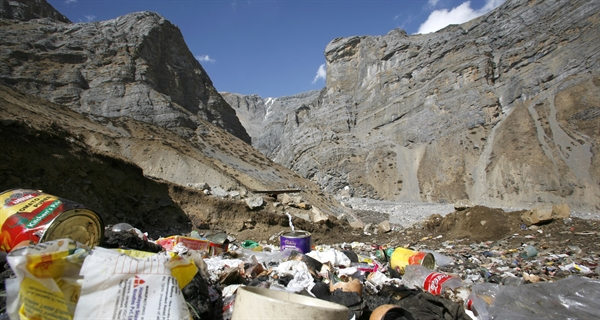

20/05/2021
Plastic is everywhere, even in places where one would not expect to find it. Remote but important regions are increasingly impacted, from Mount Everest and other high-altitude and apparently pristine alpine nature reserves to small islands in the middle of our oceans, for example in the Indian Ocean. So, plastic pollution is a growing global concern. The public is increasingly moved by images of plastic waste in seas and on beaches worldwide, whilst simultaneously, scientific research aims at understanding the effect of particles known as “microplastics” on human health and the environment. Much of the on-going research is focused on effects of microplastics on the marine and freshwater environments and more studies are indicating the presence of microplastics in the atmosphere and revealing their impact on inland ecosystems. This is particularly worrying given the importance of land-based ecosystems and the services they deliver.
The Basel Convention on the Control of Transboundary Movements of Hazardous Wastes and their Disposal was adopted in 1989 and as of today has 188 Parties, giving it almost universal coverage. It is the only global legally binding agreement covering plastic waste. Recent decisions at the Basel Convention’s Conference of the Parties (COP) have shown that the international community recognizes the need to tackle this problem at source. In May 2019, the ground-breaking decisions to amend the Annexes to the Convention was adopted. This was a first step to challenge the most pressing questions in the field of plastic waste, namely, how to prevent and minimize their generation, how to better control transboundary movements of plastic wastes, manage enormous quantities of plastic waste in an environmentally sound manner and prevent leakages into the environment, giving ever more attention to land-based sources of plastic waste. These Amendments become effective on 1st January 2021.

Plastic waste not only flooded in seas, but also in remote and mountainous areas
The Plastic Waste Amendments will change the way plastic waste is internationally traded, bringing additional types of plastic waste into the existing control mechanism known as the Prior Informed Consent (PIC) Procedure. Increased transparency, traceability and sharing of information will make enforcement more effective, curbing the illegal dumping of plastic waste in countries lacking the capabilities for environmentally sound management. This new regime will also provide a powerful incentive for the private sector, Governments and other stakeholders to strengthen capacities for recycling. Moreover, it will help create jobs and economic opportunities, not least by incentivizing innovation, such as in the design of alternatives to plastics and the phase-out of toxic additives.
The Basel Convention Plastic Waste Partnership was set up to help operationalize the Plastic Waste Amendments and to significantly reduce the discharge of plastic waste and microplastics into the environment. With more than 100 members from Governments, civil society and the private sector, the Partnership has four project groups through which pilot projects and other activities will be implemented.
The Secretariat of the Basel Convention is also proud to implement a project entitled “Plastic waste in remote and mountainous areas”, with financial support from France and Norway. The project aims to build an improved understanding of the plastic waste situation in remote and mountainous areas, enhance knowledge of lessons learned and best practices in the environmentally sound management of plastic waste in such areas among relevant stakeholders and enhance their ability for informed decision-making through the availability of options and recommendations, increased awareness of the plastic waste challenge and the steps needed to address it. Subsequently, the project seeks to apply the collected best practices to mountainous and remote areas in a developing country setting through pilot testing of the outcomes. Some activities will also be implemented with a particular focus on the pilot country, Kyrgyzstan. including clean-up campaigns and the installation of collection containers for plastic waste.
Châu Long
(Source: Vietnam Environment Administration Magazine, English Edition I - 2021)